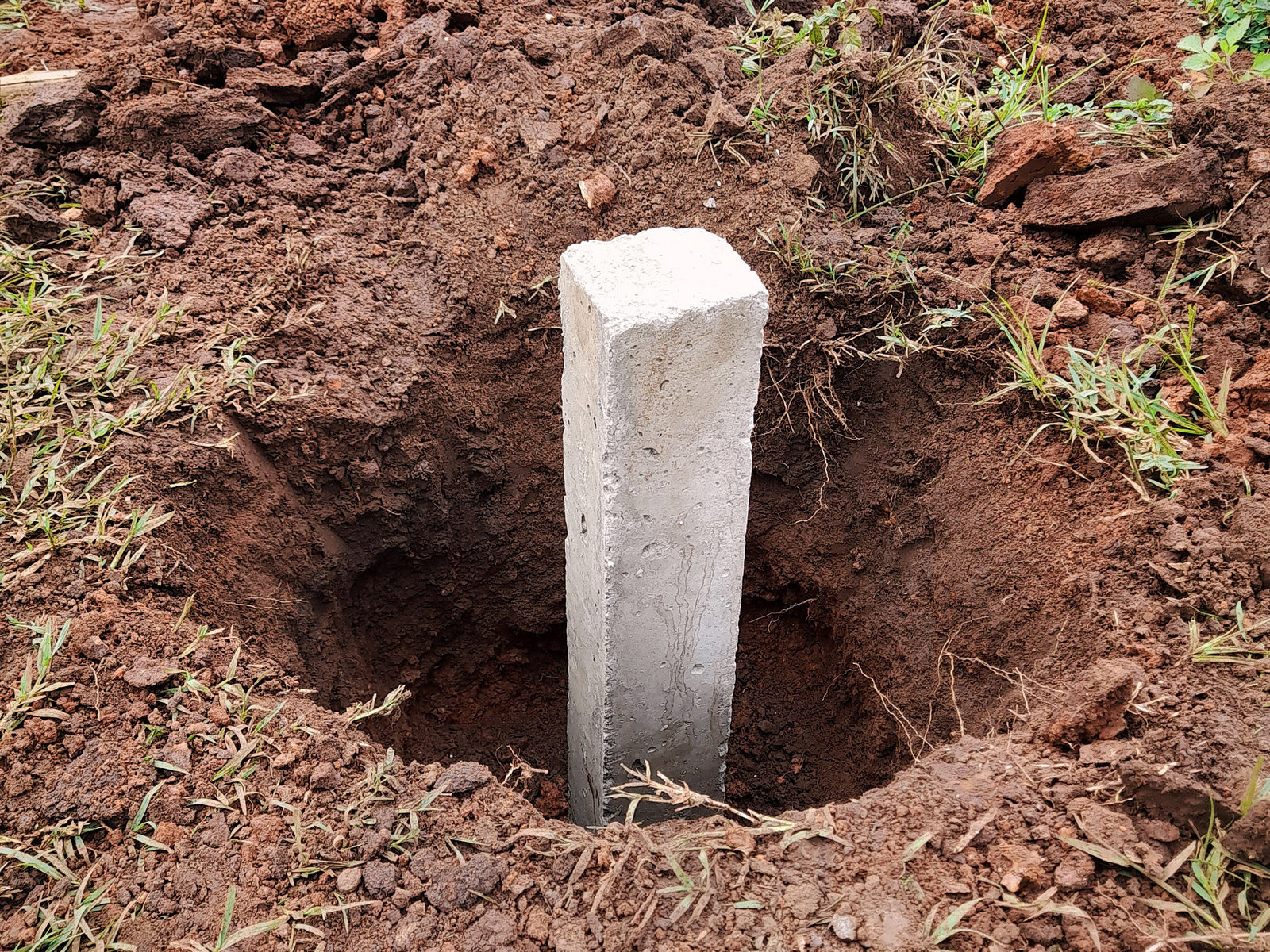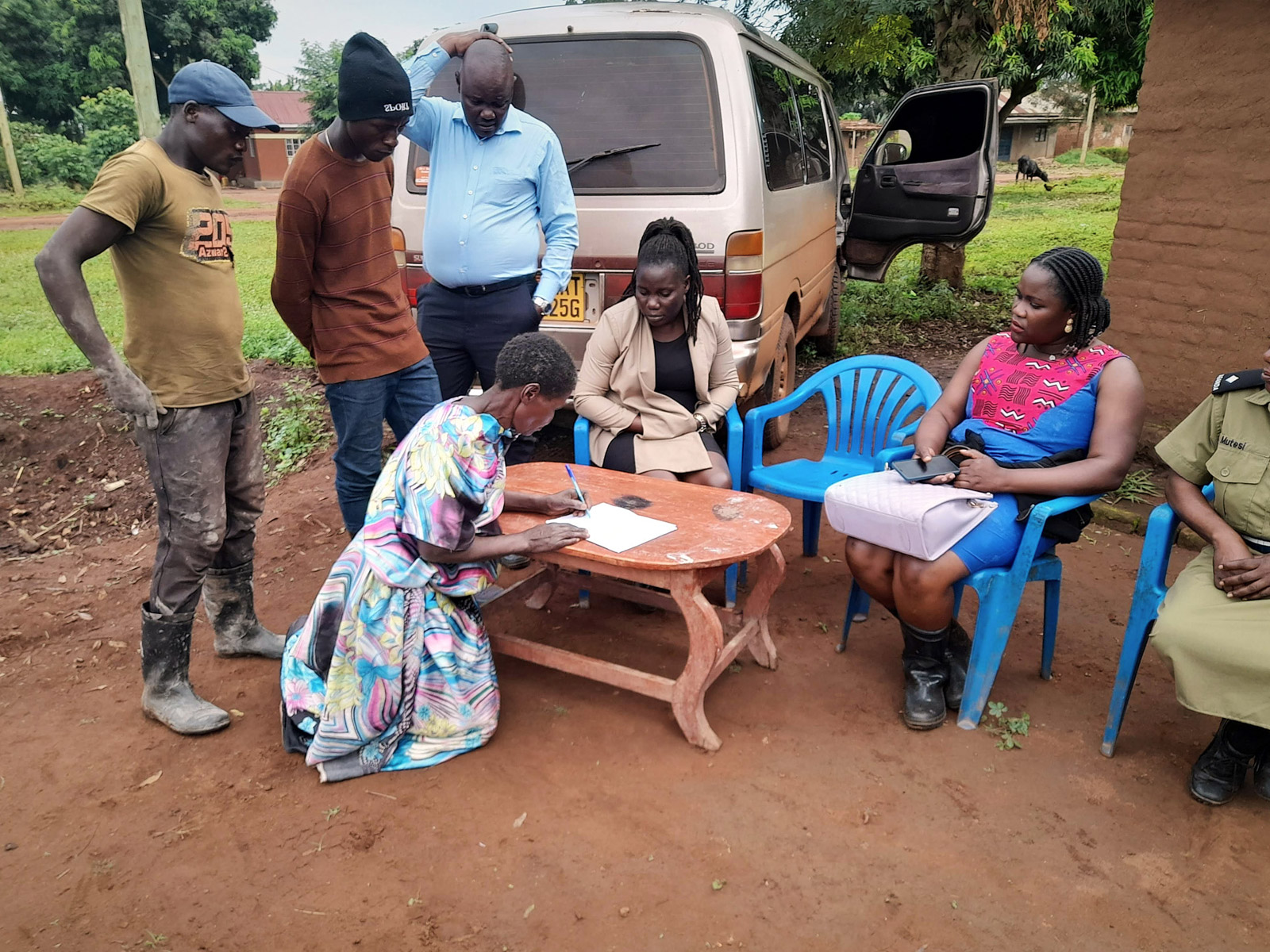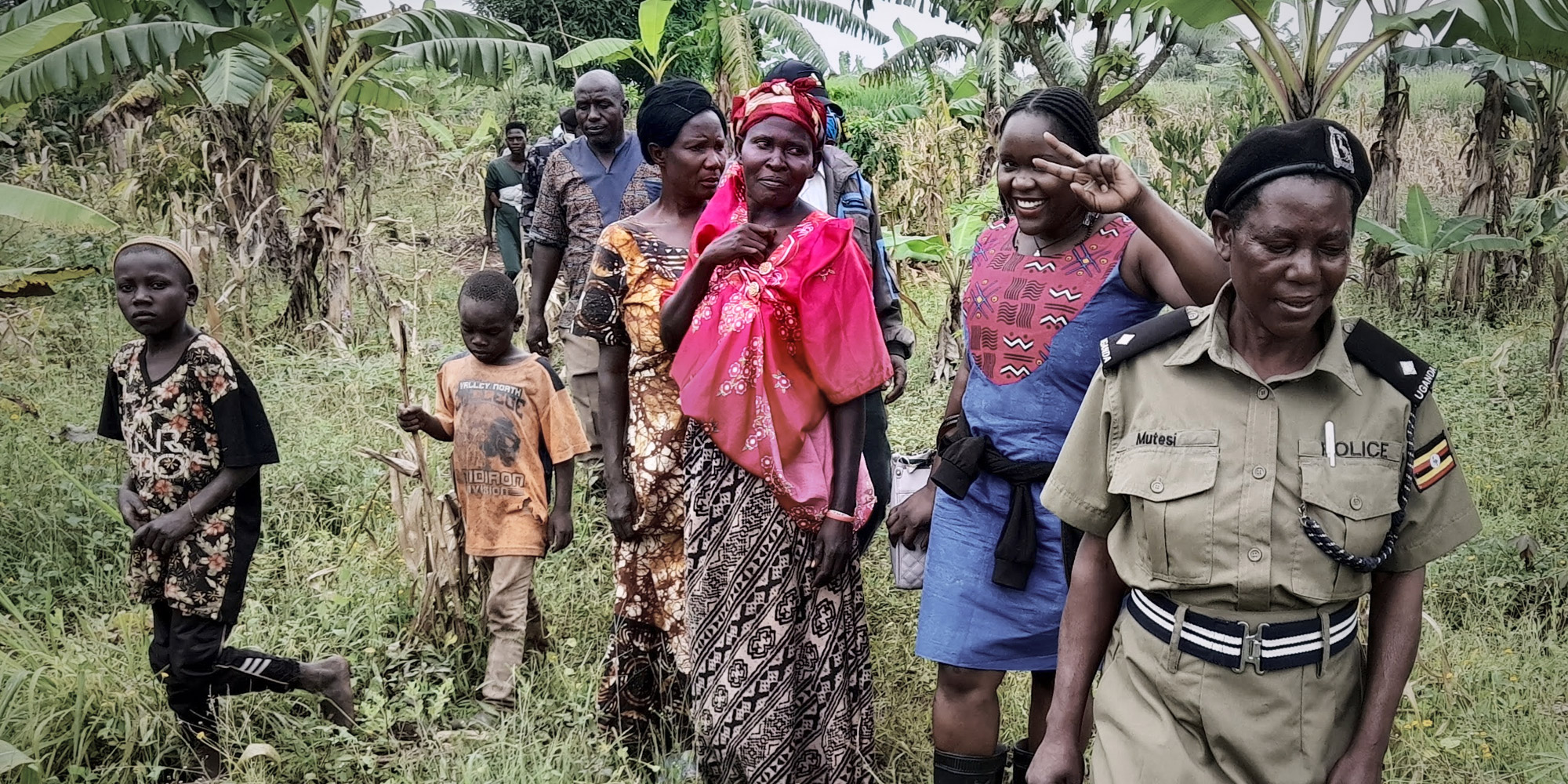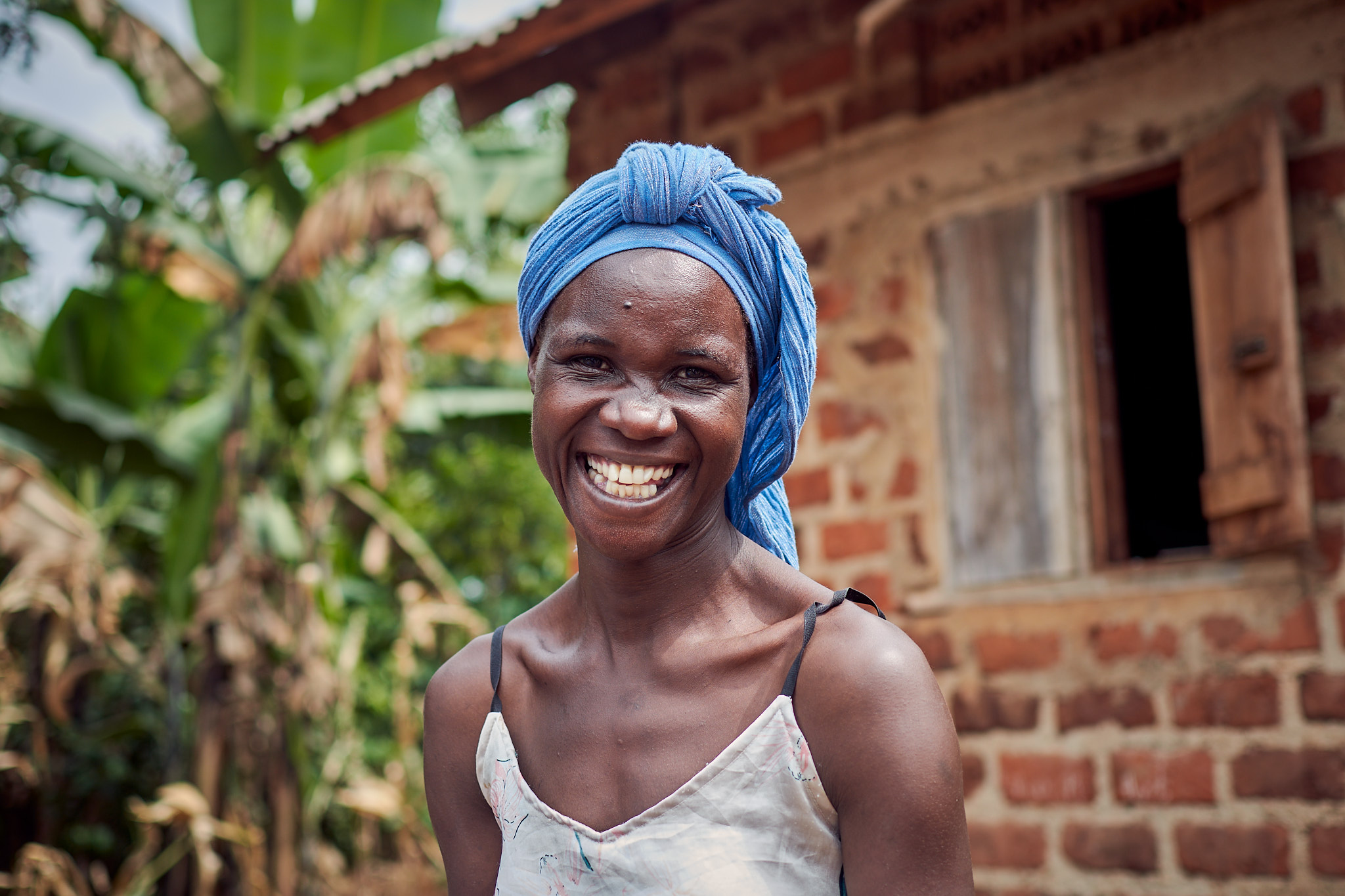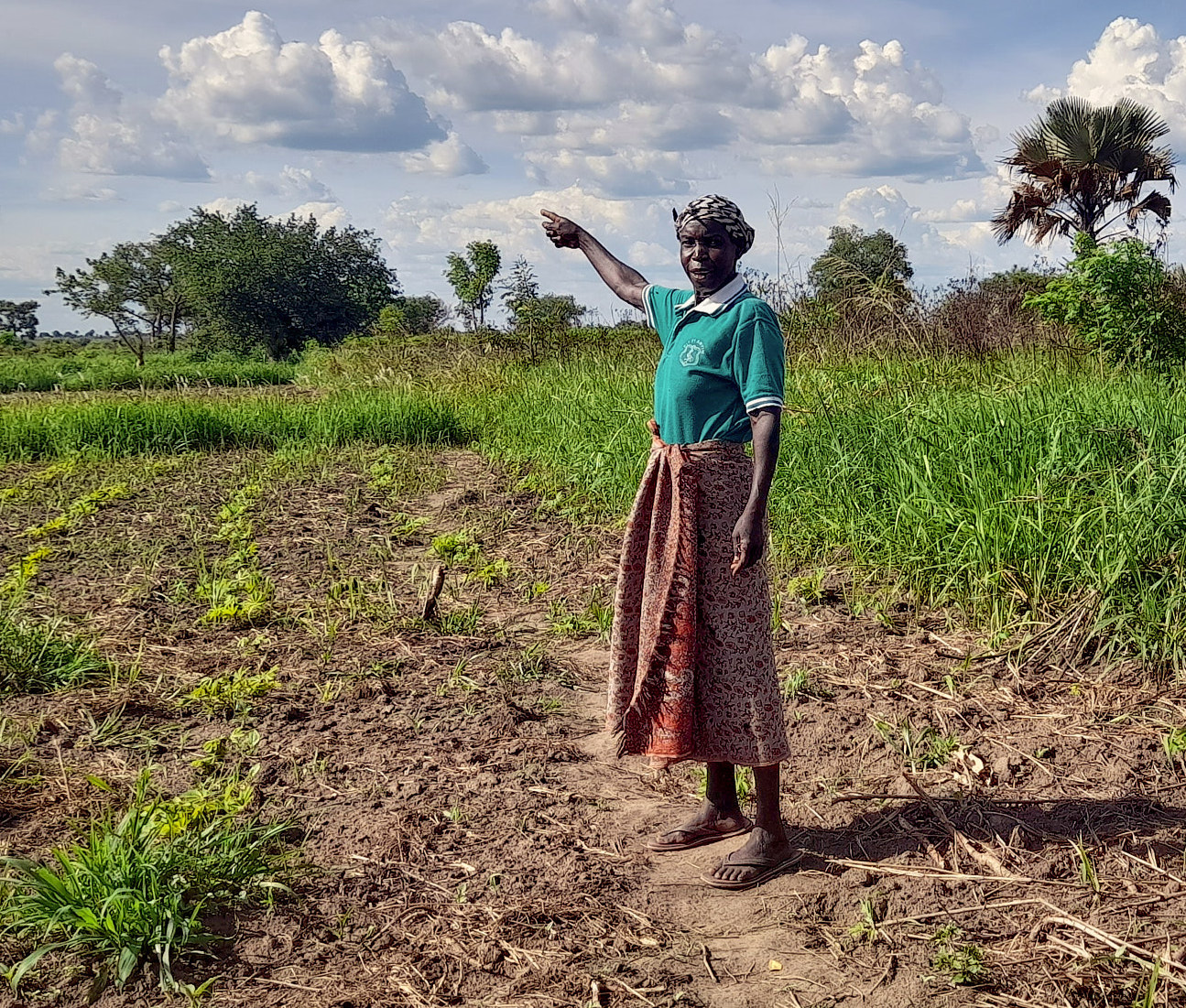Before Sarah’s* husband died in 2013, he granted her and their children a portion of his property as their inheritance. As is customary in that part of Uganda, the ownership of the land wasn’t documented in writing or marked in any way. Without her husband to verify the boundaries of the land, Sarah and her children were left in a precarious position.
In 2020, after seven peaceful years on the land, Sarah’s stepson—her late husband’s oldest son from a previous marriage—began to harass her and her children. Claiming he owned more land than he had actually been given by his father, the stepson planted crops on Sarah’s land. When Sarah’s children started to build a house on the property, the stepson destroyed the house’s foundation and threatened them with violence if they would try to build it again. Sarah sought the aid of local clan leaders and government officials, who tried to intervene on her behalf. But the stepson knew that without any support from law enforcement authorities, the local leaders had no real power to stop him. So the abuse continued.
In late October of 2022, Sarah attended a community engagement meeting held by Redeem’s Iganga Team. She approached our team and pleaded for help. Redeem’s team took Sarah as a client, and quickly got to work. Redeem investigated Sarah’s claims and helped her file a case with the police. The Iganga Team facilitated police investigations by bringing witnesses to the police, and transporting police officers to the scene of the crime. Redeem was present when the police arrested the stepson for criminal trespass and intermeddling (i.e. interfering with someone else’s rightful inheritance).
After two days in police detention, the stepson agreed to respect the boundaries of Sarah’s land and promised not to harass her again. Local leaders, together with Redeem, organized a demarcation and reconciliation meeting on December 19, and invited the community to attend. At the ceremony, Sarah’s family and the family of the stepson walked together around the property and placed markers in the ground at the corners of Sarah’s land. Both parties signed a written agreement in front of police and the community. After the signing, police and community leaders educated the gathered members of the community about the land rights of widows and how to get justice if land has been stolen.
A piece of paper and a concrete block may seem like insignificant objects. But for Sarah and her children, they signify a new future, where they can live, thrive, and prosper on their land.
*Client names changed for privacy
